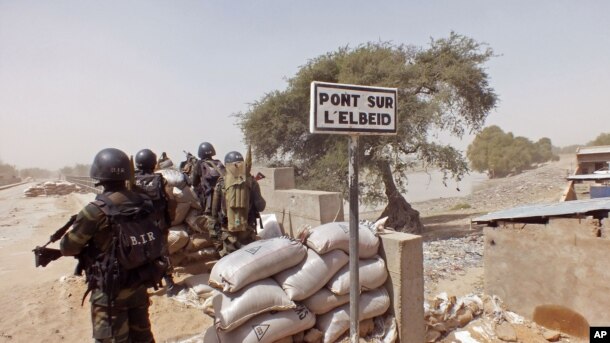ZAMAI, CAMEROON — undreds of Cameroonians living in northern Nigeria, near territory controlled by the Boko Haram terrorist group, are escaping atrocities and returning to their villages of birth with the hope of finding peace. Rights groups, however, say the returnees are rejected by their communities and face several forms of violence.
One hundred returnees who recently arrived at the northern Cameroon border village of Zamai, where people such as Zenabou Abu, 40, talk of the lengthy treks required to find peace and stability.
Abu, who escaped the Sambisa forest stronghold of Boko Haram along the Cameroon-Nigeria border, walked for three weeks — with her eight children in two — to get here. It was upon arriving that she saw her husband for the first time in four years, and finally learned from old friends that her parents had departed Zamai 36 years ago, when she was a kid getting settled in Sambisa with cattle ranchers.
At Zamai’s joint Cameroonian-UN operated resettlement camp, Houli Bernadette attends to pregnant and sick returnees. One of them, a 15-year-old girl, had been forced to marry a Boko Haram member.
“She was asked to stop school and forced to get married to a Boko Haram agent when she was 14,” says Bernadette “She says the girl’s husband is wanted by law enforcement authorities for selling stolen cattle and handing the money to Boko Haram fighters.”

FILE – Cameroonian soldiers stand guard at a lookout post as they take part in operations against Boko Haram militants on Elbeid bridge that separates northern Cameroon form Nigeria’s Borno state near the village of Fotokol, Cameroon, Feb. 25, 2015.
UN: 25,000 killed, 2.5 million displaced
Since Boko Haram began launching attacks in Nigeria, Cameroon, Chad and Niger three years ago, the group has destroyed villages and killed residents, especially men who refused to join them. According to United Nations estimates, some 25,000 have been killed and more that 2.5 million have been displaced.
Sali Bobo, a Cameroon-based rights advocate, says even those lucky enough to have escaped the militants find that peace remains frustratingly elusive.
“They are deeply traumatized because one day they saw foreigners arrive in their villages and slaughter their husbands and male children,” he says. “Memories of the horror keep coming to their minds, especially when they see people they have never seen before. They’re scared and find it very difficult to communicate.”
Beyond being perceived as outsiders, Bobo adds, new arrivals are forced to compete with locals for limited resources. Displaced women and girls, who are extremely poor if not homeless, frequently suffer sexual harassment and sometimes rape, he says.
“The returnees, who are mainly women and children, [are ordered] to obey the people of Zamai village who have agreed to host them,” said Ibrahim Hamaoua, Zamai’s traditional ruler of Zamai, explaining that conflicts over food and water erupt regularly.
“Within the past two months, hundreds of returnees have complained of hunger and thirst,” he added. “The villagers are not happy because they themselves have not had enough to eat and drink.”
In February, the United Nations called on the governments of Cameroon and Nigeria to ensure that areas purportedly liberated from Boko Haram forces are truly safe for people returning home.








